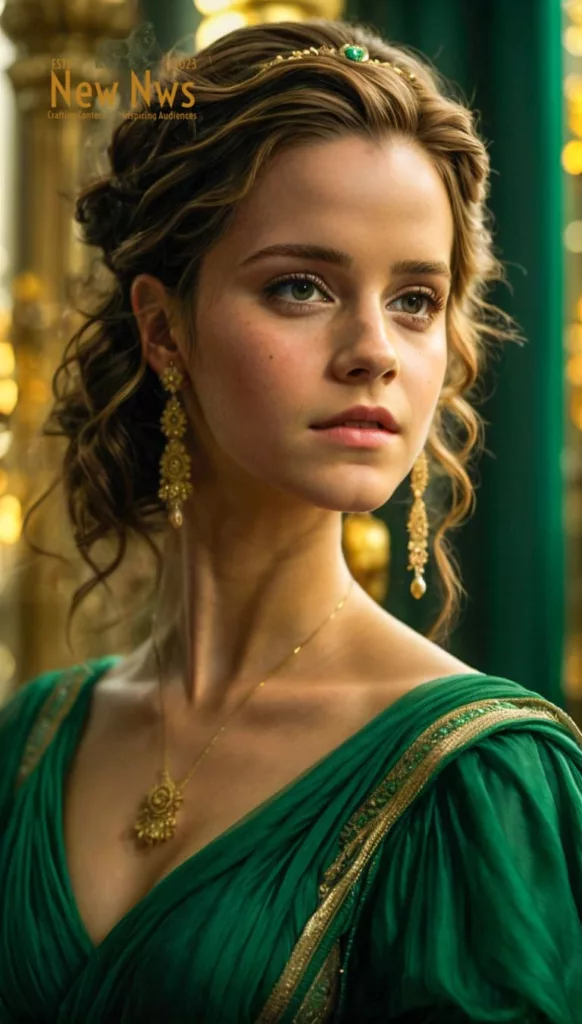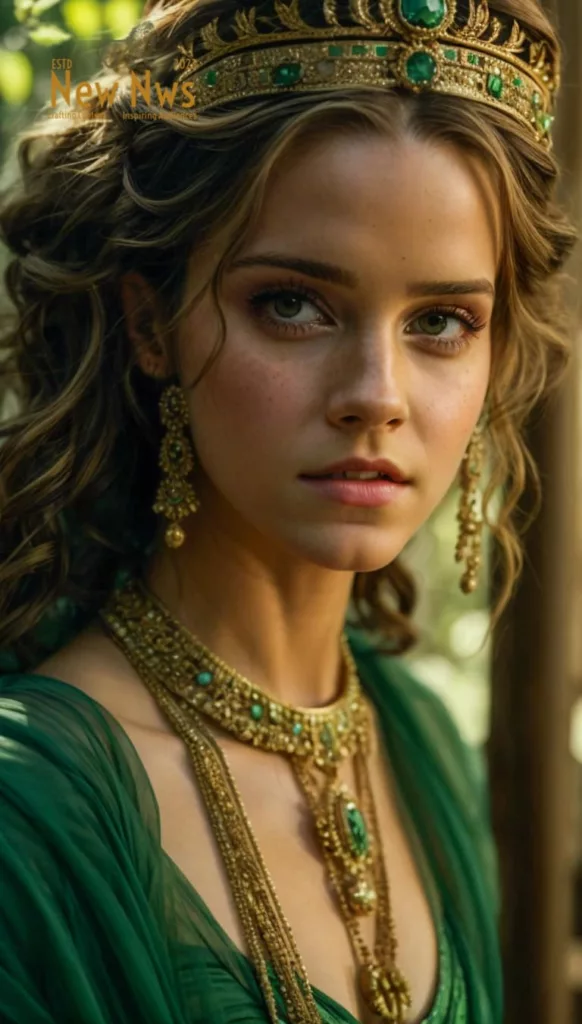


Emma Watson, celebrated for her timeless elegance and grace, recently captivated audiences with her portrayal of a Greek goddess, embodying the epitome of aristocratic beauty. In this enchanting costume, Watson exuded an aura of regal splendor and ethereal charm, transporting viewers to a realm of myth and legend.
Adorned in flowing fabrics reminiscent of ancient Greek attire, Watson’s costume captured the essence of classical beauty and sophistication. The draping folds of her garment accentuated her statuesque figure, while delicate details and embellishments added a touch of opulence and grandeur.

With her hair styled in loose waves and adorned with gilded laurel wreaths, Watson epitomized the quintessential image of a Greek goddess, her luminous beauty enhanced by the soft glow of ethereal lighting. Every movement was imbued with grace and poise, evoking the timeless allure of antiquity.
But beyond the surface glamour of her appearance, Watson’s portrayal of a Greek goddess carried deeper significance. It symbolized the enduring power of mythology to inspire and captivate the imagination, while also serving as a testament to the timeless beauty and grace of the human form.
As images of Watson in her costume circulated, fans and admirers were entranced by her breathtaking transformation into a goddess of legend. Her portrayal was a testament to her versatility as an actress and her ability to embody characters with depth and nuance.
In the end, Emma Watson’s aristocratic beauty in the costume of a Greek goddess was a testament to her status as a true icon of elegance and grace. With her luminous presence and timeless appeal, she continues to inspire awe and admiration, leaving an indelible mark on the world of entertainment and beyond.
